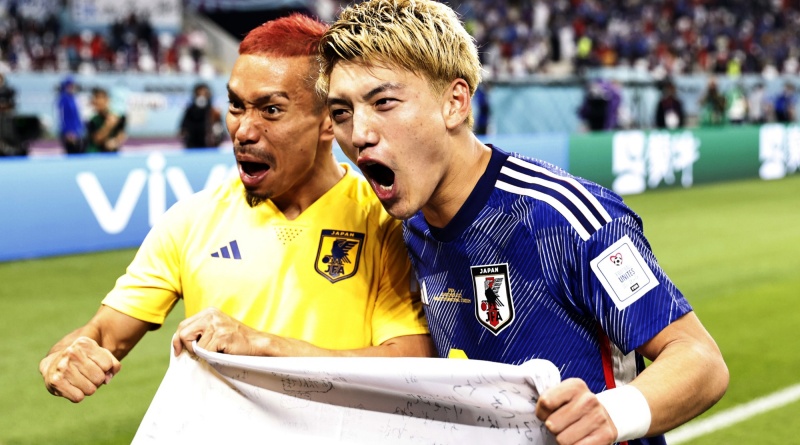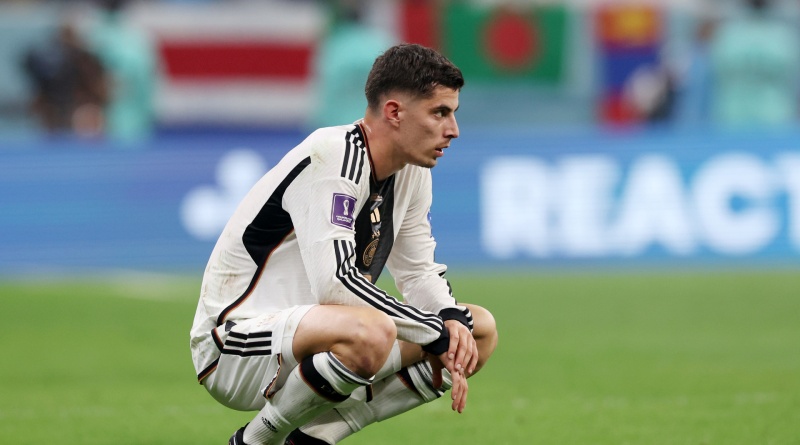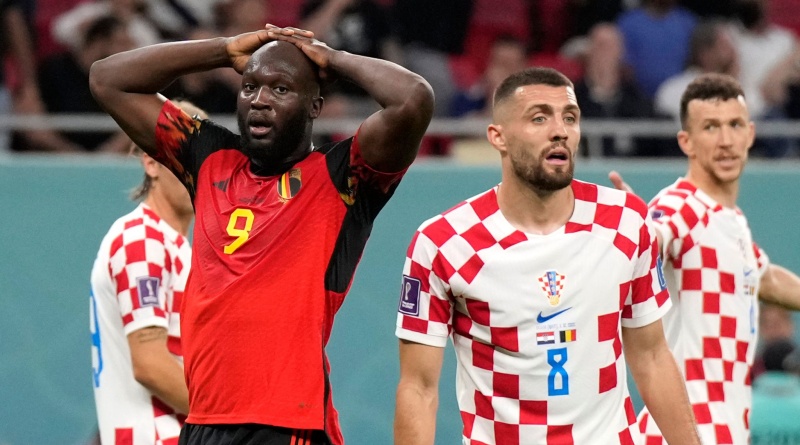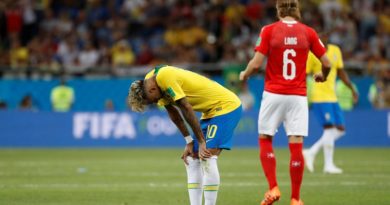Five things we learned from the 2022 World Cup group stages
With the group stages now concluded, 16 teams have booked their spots in the knockout rounds. Reigning champions France will hope to become the first team since Brazil to successfully defend their title, and Les Bleus have been given a more comfortable draw in Poland – at least, on paper. Others to join the 2018 World Cup winners include EURO 2020 finalists England, who will face this year’s AFCON winners Senegal, while the USMNT, who are CONCACAF‘s only representative at this juncture, will take on 2010 World Cup runners-up the Netherlands.
The four other fixtures will feature 2018 finalists Croatia against Japan, who really are shaping up to be one of the most enigmatic teams of this competition, while Spain, who won this competition in 2010, will lock horns with a Morocco side who have really impressed everyone so far. Finally, Brazil, who have won more titles (five) than any other side in this competition will face South Korea and EURO 2016 winners Portugal will square off against Switzerland.
Now that the hectic group stages is done and dusted, there were predictably plenty of takeaways from the first batch of games at the 2022 FIFA World Cup. Here are five in particular that stood out.
Football really is the beautiful game…
Upsets, upsets, and more upsets. That’s what makes the World Cup such a highly anticipated competition. And we did not have to wait long to be treated to some interesting spectacles. On matchday one, Argentina faced Saudi Arabia in a match that pretty much everyone expected to be one way traffic. “How many goals will Lionel Messi score?” was one question bandied about; another was “Will Saudi Arabia be able to keep the score-line as respectable as possible?”
Well, the beauty of football is its unpredictability, and Saudi Arabia were clearly not keen on suffering another mauling in their tournament opener. Despite going a goal down, the Green Falcons came roaring back in the second half to win that match 2-1, and arguably set the record for one of the biggest upsets in tournament history.

Other key upsets include Japan’s wins over both Spain and Germany – in both games, the Blue Samurai went a goal down and then came back in the second 45, as well as Morocco dispatching Belgium 2-0 in a match that many thought the Red Devils would cruise to victory. And with the tournament just heating up, there could be more surprises in store for fans.
…but it can be so cruel at times
Wednesday saw Mexico suffer a heartbreaking result as El Tri were eliminated from the group stages for the first time since 1978. Despite putting in a spirited performance to beat Saudi Arabia 2-1 and Poland being absolutely awful as they lost 2-0 to Argentina, Mexico were eliminated solely because they had picked up more yellow cards than Poland. Despite being known as the beautiful game, football truly can be quite cruel at the worst of times.

Morocco flying the flag high for Africa
Morocco are the African team to win their group since the turn of the 21st century. In a group that featured 2018 World Cup runners up Croatia as well as a Belgium side that are (somehow) ranked as the second best team in the world. No wonder most people were quick to write the North African nation off, but they did so at their own peril.
For not only did Morocco qualify, but they did so as group winners, becoming the first African side to win their group since Nigeria did so in 1998. They will face Spain in the round of 16, but having gotten through a tough group by drawing Croatia, followed by a brilliant 2-0 win over Belgium and then picking up another three points against an already-eliminated Canada, certainly, the Atlas Lions will be full of confidence.

In terms of the round of 16, African sides are fairly well represented, with Senegal also joining Morocco. To date, no African team has ever gotten beyond the quarter-finals, and while it’s still too early to tell whether it will happen this year, who knows what more upsets Morocco, or even Senegal, may have in their respective arsenals.
Are Japan shaping up to be the real dark horses of this tournament?
Coming into the 2022 FIFA World Cup, you’d be hard pressed to find anyone who would mention Japan as dark horse contenders. Much of the focus was on other countries like Denmark, and perhaps even Serbia. The Asian nation did make it to the round of 16 four years ago, but were unfortunately beaten by Belgium as they threw away a two goal lead to lose 3-2. As such, when the groups were announced, the majority of people predicted it would be Germany and Spain to progress, with Japan hoping to finish in second.
Well, the Blue Samurai clearly are showing that they need to be taken seriously. They have won four AFC Asian Cup titles, which is more than any other side in their conference. And by making it into the round of 16 this year, that marks a fourth such appearance in their last seven World Cup appearances. This time around, they didn’t just only qualify, they did so by winning their group, beating European powerhouses Spain and Germany – both of who have won five World Cups between them – along the way.

Croatia will be wise to take notes from how their fellow European counterparts were outwitted by the Hajime Moriyasu’s brilliant tactical nous in order to avoid a similar upset when the two sides meet in the round of 16.
Germany and Belgium fail to make the grade
For the first time in history, Germany are out of the World Cup in the group stages. It was a really crushing blow for die Mannschaft, who won their game against Costa Rica 4-2, but it wasn’t enough as Spain slumped to a shock 2-1 defeat to the same Japan who had beaten them on matchday one. There is still some huge controversy about Japan’s goal, as images show that the ball had gone out in the build-up to that goal, but for now, it still stands and the Blue Samurai have managed to top their quartet and will face Croatia in the round of 16. Don’t be surprised if they try to repeat the same tactic they used against Germany and Spain – letting their opponents have the ball and then come roaring back to score two before parking the bus for the rest of the match.
VAR or no VAR, however, it’s another terrible showing from the four-time World Cup winners on the biggest stage. There were some bright aspects of this squad, namely Bayern youngster Jamal Musiala and Chelsea’s Kai Havertz again showing his knack for scoring big goals. However, expect a massive overhaul of the team, possibly starting with the manager, while long-time veterans like Manuel Neuer and perhaps Thomas Muller might be shown the door in favor of younger options.

Meanwhile, Belgium’s failure to progress shows that FIFA rankings mean nothing. The Red Devils somehow came into this contest ranked as the number two side in the world despite failing to win any silverware, and actually were ranked top a few years ago in spite of their empty trophy cabinet. There has been much fuss about the country’s so-called “Golden Generation” over the past decade.

Yet, their performance at this World Cup showed that while they do have some talent in their squad, Belgium are simply a victim of their own hype and deserve to be viewed as a vastly overrated squad whose golden aura is nothing but an illusion. To highlight this notion further, if Belgium were an item of jewelry, they would be gold-plated items as opposed to solid gold. A decent team (or jewelry item), but certainly not worthy of the high ratings they have received over the past decade or so (or price, in the case of the jewelry piece).
All in all, there were plenty of more talking points from the group stages at this World Cup that didn’t make the list, but given how entertaining it has been so far, there will be certainly more to add once the 16 teams in the first knockout rounds becomes eight in just a few days’ time.



